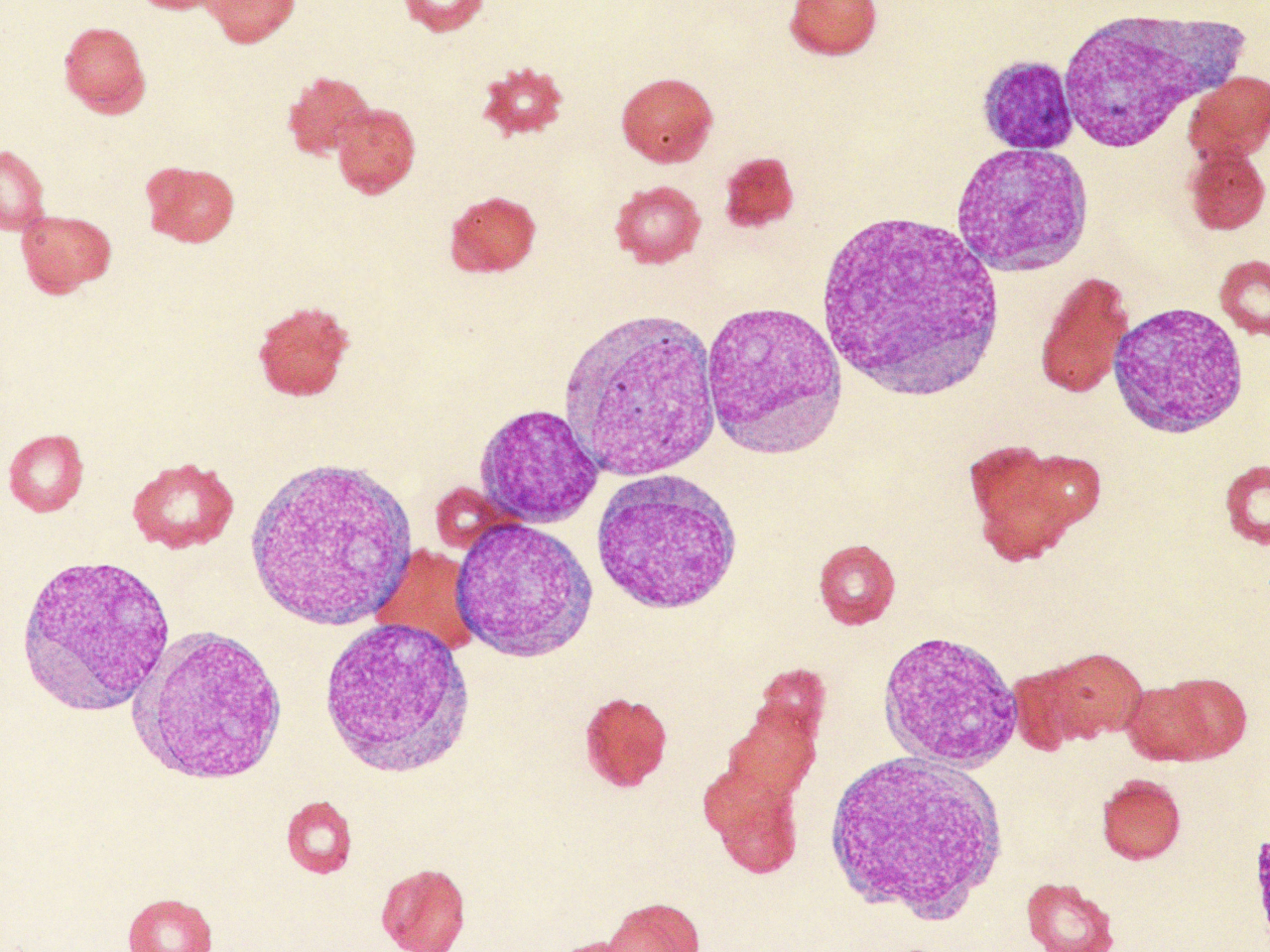- Center on Health Equity & Access
- Clinical
- Health Care Cost
- Health Care Delivery
- Insurance
- Policy
- Technology
- Value-Based Care
FLT3 Inhibitor Gilteritinib May Also Be Effective as ALK Inhibitor in AML
The case study, which showed prolonged disease control achieved with gilteritinib in a previously-treated patient with AML with an inv(2)(p23q13) translocation, indicates that gilteritinib can also be used as an anaplastic lymphoma kinase (ALK) inhibitor.
A targeted treatment used for FLT3 inhibition may also be effective as an anaplastic lymphoma kinase (ALK) inhibitor in acute myeloid leukemia (AML), suggest findings from a case study.1
The case study, which showed prolonged disease control achieved with gilteritinib (Xospata) in a previously-treated patient with AML with an inv(2)(p23q13) translocation, indicates that gilteritinib can also be used as an ALK inhibitor. Gilteritinib is currently approved for use in relapsed or refractory AML with a FLT3 mutation, receiving FDA approval for the disease type in 2018.2
Blast cells AML | image credit: Nun22 - stock.adobe.com

“Our findings confirm that a RANBP2-ALK fusion can act as a driver mutation in AML and that gilteritinib can be a clinically effective and well-tolerated ALK inhibitor and could be considered as a component of treatment for any AML patient whose disease harbors an inv(2)(p23q13) mutation,” commented the researchers of the case study, who detailed their findings in NPJ Precision Oncology.1
The patient included in the case study was a 75-year-old woman with ALK-fusion positive AML with a suspected germline DDX41 mutation. At the time of the paper’s publication, the patient had achieved an ongoing response with gilteritinib for over a year, showing near normal blood count without dependence on transfusions and no evidence of disease.
Improvements in their condition began 3 weeks after the initiation of gilteritinib, with the patient reporting improvements in fatigue and with lab workup showing near-normal peripheral blood counts over the next 8 weeks. At 10 weeks, absolute neutrophil counts, hemoglobin, and platelets began to normalize, and bone marrow biopsy showed no increase in blasts or abnormal monocytes. These improvements suggest promising efficacy of ALK inhibition in the hematological malignancy subtype.
ALK inhibitors, such as crizotinib, ceritinib, and alectinib, have been an established, effective option for NSCLC, having shown improvements over chemotherapy in both the first-line and second-line setting (HR, 0.42 [0.35, 0.50]; P < .00001).3 Most recently, alectinib received the green light from the FDA for adjuvant treatment of NSCLC following results from the ALINA trial showing that the treatment yielded a 94% 2-year overall survival rate compared with 64% with chemotherapy.4
Despite multiple ALK inhibitors having indications in NSCLC, the researchers chose treatment with gilteritinib due to feasibility of insurance coverage, in addition to certain clinical considerations.
“This case raises questions about the ‘right to try’ for cancer patients and underscores the importance of compassionate use programs provided by pharmaceutical companies, which can be instrumental in cases like this,” wrote the researchers. “Given the rarity of ALK-fusions in hematologic malignancies, there may never be clinical trials or FDA approvals available except for a tumor-agnostic approach, as seen with other oncogenic aberrations such as BRAFV600E, NTRK, RET, among others." The processes behind approval and insurance coverage in this area remains a pertinent challenge for rare cancer types accompanied by rare, targetable genetic variations, they stated, which oftentimes limits the quality options that are afforded to patients by their health care providers.1
Prior to gilteritinib treatment, the patient was previously treated with standard therapies, yet remained transfusion-dependent and had worsening disease. The patient also had a history of essential thrombocytopenia (ET). The presence of ET and AML, explain the researchers, may have be attributable to her presumed germline DDX41 alteration, explained the researchers. Germline DDX41 alterations, although being associated with an increased risk of myeloid malignancies like AML, have also been associated with more favorable survival.
References:
- Adashek JJ, Brodsky M, Levis MJ. Complete morphologic response to gilteritinib in ALK-rearranged acute myeloid leukemia. NPJ Precis Oncol. Published online September 10, 2024. doi:10.1038/s41698-024-00701-y
- FDA approves gilteritinib for relapsed or refractory acute myeloid leukemia (AML) with a FLT3 mutation. FDA. November 28, 2018. Accessed September 25, 2024. https://www.fda.gov/drugs/fda-approves-gilteritinib-relapsed-or-refractory-acute-myeloid-leukemia-aml-flt3-mutation
- Khan M, Lin J, Liao G, et al. ALK inhibitors in the treatment of ALK positive NSCLC. Front Oncol. Published online January 8, 2019. doi:10.3389/fonc.2018.00557
- Alectinibapproved as an adjuvant treatment for lung cancer. National Cancer Institute. May 8, 2024. Accessed September 25, 2024. https://www.cancer.gov/news-events/cancer-currents-blog/2024/fda-alectinib-lung-cancer-alk-positive
